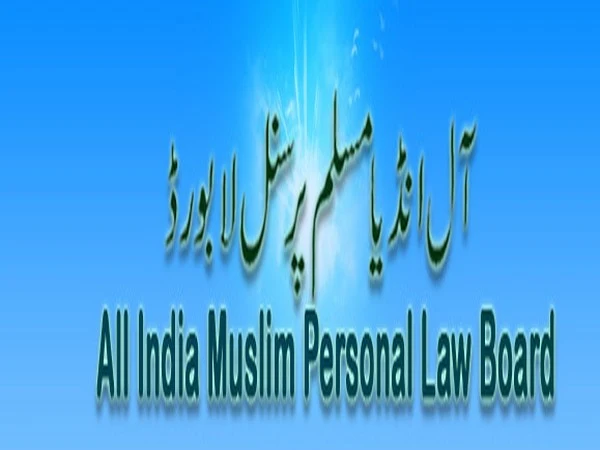பொது சிவில் சட்டத்துக்கு எதிர்ப்பு தெரிவித்து சட்ட ஆணையத்துக்கு அகில இந்திய முஸ்லிம் தனிநபர் சட்ட வாரியம் கடிதம்!
பொது சிவில் சட்டம் குறித்து நாட்டு மக்கள் உட்பட அனைத்து தரப்பினரும் தங்கள் கருத்துகளை கடந்த 14-ம் தேதி முதல் தெரிவிக்கலாம் என சட்ட ஆணையம் அறிவித்திருந்தது.
இது தொடர்பாக பலரும் தங்கள் கருத்துகளை சட்ட ஆணையத்தின் இமெயில் முகவரியில் தெரிவித்து வருகின்றனர்இந்நிலையில் அகில இந்திய முஸ்லிம் தனிநபர் சட்ட வாரியம், அவசர கூட்டத்தை காணொலி மூலம் கூட்டி இதுகுறித்து ஆலோசனை நடத்தியது. அந்தவகையில் முஸ்லிம் தனிநபர் சட்ட வாரியம் பொது சிவில் சட்டத்துக்கு எதிர்ப்பை தெரிவித்து உள்ளது.
பொது சிவில் சட்டத்தின் அம்சங்கள் குறித்து ஆலோசித்த முஸ்லிம் தனிநபர் சட்ட வாரிய உறுப்பினர்கள், பொது சிவில் சட்டத்தை எதிர்க்க முடிவு செய்துள்ளனர்.
இது தொடர்பாக சட்ட கமிஷனுக்கு கடிதம் அனுப்பப்பட்டு உள்ளது.அகில இந்திய முஸ்லிம் தனிநபர் சட்ட வாரியம் எப்போதும் பொது சிவில் சட்டத்துக்கு எதிராகவே இருந்து வருகிறது. பல மதங்கள் மற்றும் கலாசாரங்களை கொண்ட இந்தியா போன்ற ஒரு நாட்டில் பொது சிவில் சட்டம் என்ற பெயரில் ஒரேயொரு சட்டத்தை மட்டும் திணிப்பது ஜனநாயக உரிமைகளை மீறுவதாகும்
மேலும் பொது சிவில் சட்டம் அரசியல் சாசனத்துக்கு எதிரானது என்பது எங்கள் நிலைப்பாடு. அதனால், பொது சிவில் சட்டத்தை கடுமையாக எதிர்ப்போம். இந்தியாவில் பல மதத்தினர் உள்ளனர்.பொது சிவில் சட்டம் முஸ்லிம்களை மட்டுமின்றி, இந்துக்கள், சீக்கியர்கள், கிறிஸ்தவர்கள், ஜைனர்கள் என அனைத்து தரப்பினரையும் பாதிக்கும்’ பெரும்பான்மை கொண்ட அரசால், பொதுசிவில் சட்டத்தை மக்கள் மீது வலுக்கட்டாயமாக திணிக்க முடியாது, இது பிளவுகளை மேலும் அதிகரிக்கும்
இஸ்லாமிய சட்டங்கள் திருகுர்ஆன் மற்றும் சுன்னாவிலிருந்து நேரடியாக பெறப்பட்டது மற்றும் இந்த அம்சம் அவர்களின் அடையாளத்துடன் இணைக்கப்பட்டுள்ளது.நமது நாட்டின் அரசியலமைப்புச் சட்டத்தில் இடம் பெற்றுள்ள இந்த அடையாளத்தை இந்திய முஸ்லிம்கள் இழப்பதை ஏற்க மாட்டார்கள். சிறுபான்மையினரையும் பழங்குடியினரையும் அவர்களது சொந்தச் சட்டங்களால் ஆள அனுமதிப்பதன் மூலம் நமது நாட்டின் பன்முகத்தன்மையைப் பராமரித்தால் தேசிய ஒருமைப்பாடு, பாதுகாப்பு மற்றும் பாதுகாப்பு மற்றும் சகோதரத்துவம் சிறப்பாகப் பாதுகாக்கப்பட்டு பராமரிக்கப்படும்.” என்று கூறப்பட்டுள்ளது.
All India Muslim Personal Law Board's Response to Law Commission on UCC New Delhi, 5th July 2023
The All India Muslim Personal Law Board today registered its objections to the Law Commission's Notice dated 14.06.23 soliciting "views and ideas on uniform civil code" in the form of a Representation. "Our response to the Law Commission on UCC is based on 5 points," said Dr. SQR Ilyas, Spokesperson, All India Muslim Personal Law Board, "which includes 1) Preliminary Issue, II) Response and Report of 21" Law Commission, III) Uniform Civil Code, IV) Existing Civil Laws, V) Conclusion."
In the first part of the Representation, the Board has detailed out the preliminary objections stating that the content set out in the captioned Notice is vague, too general, and unclear. The relevant portion has been placed as the following excerpt:
"The terms for the suggestions to be invited are missing. It appears that such a large issue has been floated in the public domain to seek a referendum as to whether the reaction of the general public also reaches the Commission in either equally vague terms or in a 'yes' or 'no'. We are making this submission for multiple reasons because this issue being a purely legal issue has also been fodder for politics and consumption of media-driven propaganda. This issue becomes further important because this Commission's predecessor had examined the very same issue and reached a conclusion that Uniform Civil Code is neither necessary nor desirable. Within such a short span of time, it is surprising to see the successive Commission again seeking public opinion without there being any blueprint as to what the Commission intends to do.
... the fundamental religious book of Muslims, being the Holy Quran, Sunnah and Figh (Islamic Law) in the form of religious texts, which are matters of Articles 25 & 26, mandate its believers to follow the injunctions as prescribed therein. The followers of Islam find themselves bound by those injunctions and the same are non-negotiable terms. Personal relationship of Muslims, guided by their personal laws, is directly derived from the Holy Quran and Sunnah (Islamic laws) and this aspect is linked with their identity. Muslims in India will not be agreeable to lose this identity of which there is space within the constitutional framework of our country. National integrity, safety and security and fraternity is best preserved and maintained if we maintain the diversity of our country by permitting minorities and tribal communities to be governed by their own personal laws."
In the second part of the Representation, the Board has pointed out and annexed the detailed Response of AIMPLB to the 21" Law Commission on the same issue along with other communications.
The Representation, in the third part, delve in detail on our country's pluralistic principles, vast diversity and multiculturalism. It discussed, in detail, the issues of Secularism, Gender Justice & Principle of Equality, National Integration and Supreme Court Observations. The Representation reads:
"Prevalence of multiple personal laws by different communities is consistent with religio- cultural rights of the members of Indian communities flowing from conjoint reading of Articles 25, 26 and 29 of the Constitution. The application of such laws as per the religio- cultural norms of different communities/tribes should be celebrated as the shining example of a robust democracy in our beloved country."
In the fourth part of the Representation, the existing legal paradigm has been discussed. The Representation states, "We are placing these facts to point out that the religious principles and customary and tribal exemptions that have been reflected in the existing statutes show the inalienable position of the dominant religious group and customs that cannot be dispensed with in such codes.
The exercise of analysing the scope and nature of a prospective Uniform Civil Code can only be done through analysing the existing family laws-both general and personal. There are two premises of such an analysis:
a) Are the existing general/uniform family laws truly uniform?
b) Are the existing codified community-based personal laws uniform?"
Then the AIMPLB draft analyzed the existing civil laws and came to the conclusion that existing general / uniform family laws are not truly uniform, even existing codified community based laws are also not uniform...It is stated that SMA, the closest and continuing model of a uniform family law in India, is not uniform'. SMA, not only has been designed as per the majoritarian morality but provides exceptions for customary laws.
Tags: இந்திய செய்திகள் மார்க்க செய்தி

